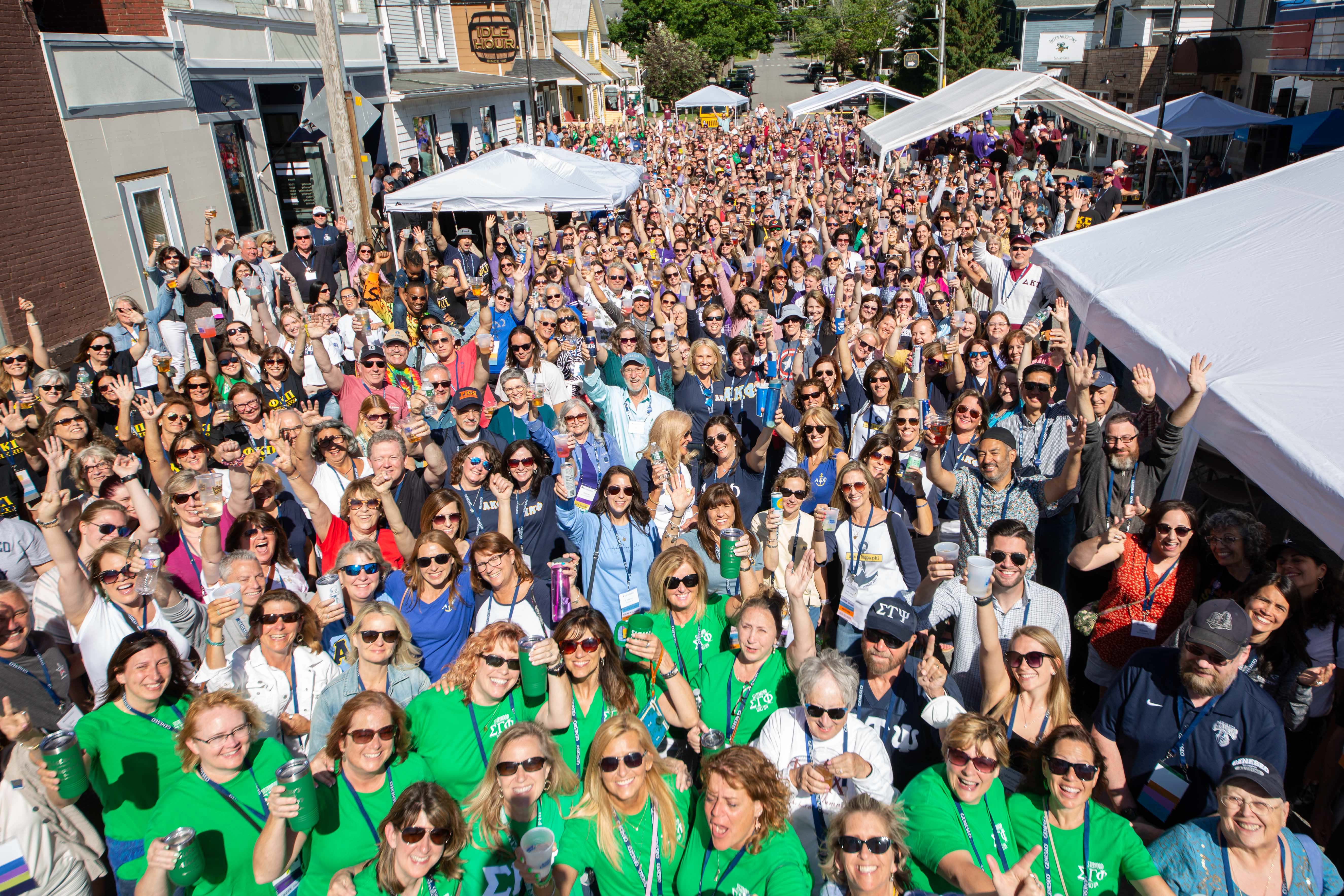Steve Hilfiker ’88 was saved by a heart transplant. He’s now dedicated to raising awareness of his rare disease and the importance of organ donation.
By Kris Dreessen
Steve Hilfiker ’88 and his doctors were baffled as he went from healthy and active to struggling to climb stairs. He had cardiac sarcoidosis, a disease in which scar tissue overtakes the heart, but it took five years for doctors to correctly diagnose it.
“Essentially, it turns your heart to stone through scar tissue,” says Hilfiker. The scarring can’t be reversed. “My heart was essentially dead.”
In July 2020, Hilfiker’s heart failed, and he was placed on an intra-aortic balloon pump for life support. Only a heart transplant would save him, and thankfully, a match appeared within a few days. Despite septic shock, an induced coma, and near-death experiences after the surgery, Hilfiker’s health turned around. The new heart he received from 31-year-old Daniel Ray French, a young North Carolina man who died too soon, gave him a second chance — and a mission.
“It was the gift of life,” says Hilfiker, “as if a new life began. My life purpose became crystal clear. I have been called to do this mission. It’s more than a calling — it’s a duty. I have knowledge and experience that will save thousands of lives. I cannot just sit on that.”

Vannessa Blais listens to her brother Danny’s heart, which was transplanted into Steve Hilfiker ’88. He’s creating a documentary about his experiences in an effort to save lives. (Photo courtesy of Hilfiker Life Missions, LLC).
Hilfiker has made milestones in his physical recovery. Ninety days after his hospital discharge, on Thanksgiving Day 2020, he hiked solo to the summit of Sharp Top Mountain in Georgia. And 11 months to the day after his heart failed, Hilfiker succeeded in water skiing with his family once again. But the true change is within, he says.
“Life is beautiful,” says Hilfiker. “We all have something to overcome.”
Hilfiker created Hilfiker Life Missions, LLC, and two nonprofit organizations. The Daniel Foundation for Organ Donation and Sarcoidosis Awareness (FODASA), named for Hilfiker’s heart donor, raises awareness about the disease and supports organ donation. The Foundation for Early Detection and Sarcoidosis Awareness (FEDASA) supports legislation and research efforts regarding early detection of the disease, including developing an educational model for medical schools to improve detection and care for sarcoidosis.
Hilfiker produced a six-minute film, “Stoneheart: An Undying Gift,” which screened at the Cannes International Film Festival in May 2022. He and director Nicholas Markart attended the event in France and are now creating a feature-length documentary about Hilfiker’s experience and the impact the disease, organ donation and transplantation have on people. They are meeting and interviewing patients, survivors and families of donors all over the world and continuing to raise awareness with media coverage.
“My 31 years of experience as CEO of Environmental Risk Management, Inc., and more than 20 years walking the halls of the Florida House and Senate in my role as an environmental consultant made it easy to become a film producer,” says Hilfiker.
Hilfiker was inspired to meet Vanessa Blais, Daniel’s sister, and invited her to attend four Elton John shows with him on the singer’s recent tour. Blais and Hilfiker used a stethoscope so she could listen to her brother’s heart during the song “Someone Saved My Life Tonight.” Hilfiker hopes to gain Elton John’s attention for the cause.
The documentary film, when finished, will share his story and the stories of many others. He hopes using his voice will help patients achieve quicker diagnoses and recovery and inspire others to become organ donors.
“My mission,” Hilfiker says, “is to save lives. We will advance methods of early detection for cardiac sarcoidosis, bring treatment before sudden death or heart failure and increase the donor pool so fewer patients perish waiting in the agonizing line for a transplant.”










